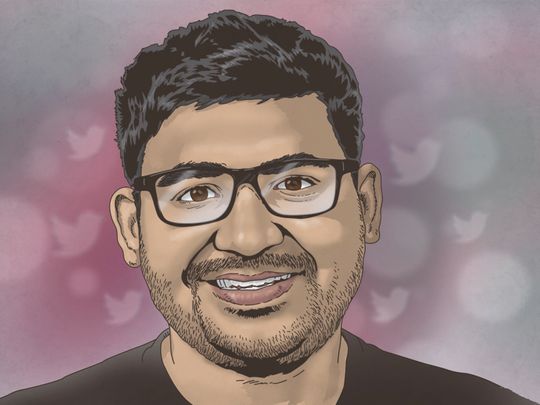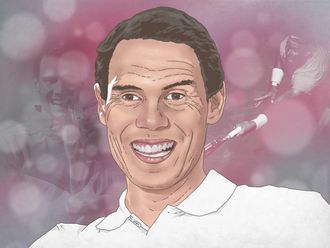
More than two decades ago, before the new millennium was to dawn, the internet wasn’t quite walking but certainly wasn’t in its infancy, and computing was mostly mainstream, we were still trying to come to grips with this brave new future.
Social engineers promised us that, in the future, we would all have more leisure time, computers would be doing our jobs for us, and we would all have enough money to go around.
Well, we all know that worked out. That brave new future turned out over these past decades to include a messaging platform — Twitter — that first allowed us to communicate in 149 characters or less.
Little did we know then — Twitter went public in 2013 — that it could shape opinions and diplomacy 149 characters at a time. It took the company three years, two months and one day after going public to reach one billion tweets sent, and today, there are almost 400 million account holders.
It’s also worth noting that in the past week as Jack Dorsey stepped down as the CEO of Twitter, it was also revealed that half of the world’s population has never used the internet. Yes, you read that right — half of the world has never used the internet.
What’s also true now is that most of the other half who do in fact use the net would still not be familiar with the name of Parag Agrawal. Certainly, in the coming months, they will hear much more about the 37-year-old computing engineer who was born in Ajmer, India in May 1984. On Monday, Twitter announced — sorry, tweeted — that Agrawal, who has worked at the company as its Chief Technology Officer for the past decade, would step up to their corner office.
He will have his in-tray full as Dorsey leaves the social media company at a critical time. His biggest problem is trying to figure out how to capitalise on those nearly 400 million users and to grow its revenues and increase its bottom line. It’s that failure under Dorsey’s leadership that ultimately led to an activist investor’s revolt that made his position untenable. And yes, a huge part of that anti-Dorsey campaign played out on the platform itself.
Twitter’s predicament isn’t unique — social and digital marketing companies are all trying to grapple with increased competition, increased competition in a crowded digital marketplace, increased scrutiny and increased concerns over how they use — and abuse — the personal data of their users.
While Twitter is far smaller than the Zuckerberg trip of WhatsApp, Facebook and Instagram, just one well-worded or badly-timed tweet has the ability to move markets instantly.
Agrawal’s resume reads like the archetypical curriculum vitae that every Indian parent would wish for their son. Although born in Ajmet in Rajasthan, his family moved to Mumbai where his father was a senior official in India’s Department of Atomic Energy. His mother was a retired schoolteacher.
Agrawal proved himself to be a brilliant student, winning a gold medal at the 2001 International Physics Olympiad in Turkey. And those exams that are so part and parcel of academic achievement and prowess across Asia? He finished 77th in the Joint Entrance Exam in 2002. His formal qualifications include a Bachelor of Technology in Computer Science Engineering from IIT Bombay in 2005, and a PhD from Stanford.
That gold standard CV shows he worked at Microsoft Research for a whole after graduating, then moving on to Yahoo Research.
He joined Twitter in 2011 as a software engineer and became the company’s Chief Technology Officer six years later. If there is a hint as to how Twitter might develop under his leadership, he has been involved in the company’s cryptocurrency initiatives as well as its machine-learning capabilities.
“He’s been my choice for some time given how deeply he understands the company and its needs,” Dorsey wrote in an internal company memo that, yes, was shared on Twitter. “Parag has been behind every critical decision that helped turn this company around. He’s curious, probing, rational, creative, demanding, self-aware, and humble. He leads with heart and soul.”
Almost to prove a point after his unanimous backing from the board of Twitter, Agrawal made an appeal to his colleagues, telling them in his first memo as CEO: “I’m one of you. I’ve walked in your shoes. I’ve seen the ups and downs, the challenges and obstacles, the wins and the mistakes.”
Dorsey’s strong backing of his protégé suggests that the pair see eye-to-eye on many of the challenges facing Twitter. Should that be the case, Agrawal might continue to develop initiatives such promoting the ability to choose different content-ranking algorithms, decentralising content moderation or placing more power in the hands of users. Given that Twitter has the power to shift markets and shape opinions, would less moderation really be a good thing?
Agrawal looks at the issue from a computing software perspective — look to shift Twitter functionality from following other users, to following on topics instead.
“By following topics, you’re choosing and able to get a diverse set of perspectives related to that topic, instead of just your set of voices that you chose to hear,” Agrawal said in an interview last year. “And we believe a future, more topical way of using Twitter is likely to expose people to a broader range of perspectives, a broader set of viewpoints, and help people sort of not be in a filter bubble.”
If he succeeds on that front alone, he will have fundamentally changed Twitter. And for that alone, he deserves a thumbs up.









